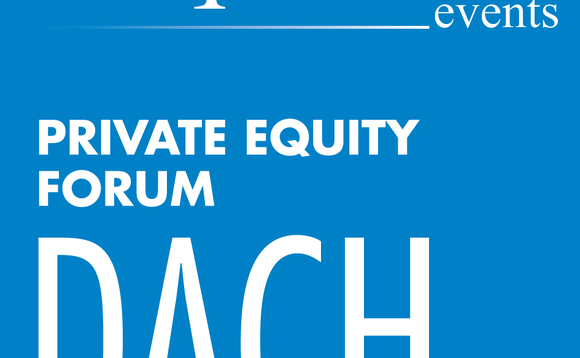
Germany: Investor confidence is the issue, says IKB’s Bauknecht

The crisis of confidence affecting Germany, escalated by events in Ukraine and Russia, means it is "increasingly likely" the country will face negative growth in the fourth quarter, says Klaus Bauknecht, managing director at IKB Deutsche Industriebank, speaking at the unquote” DACH Private Equity Forum today in Munich.
"Germany is in for a rough ride", claimed Klaus Bauknecht in his opening address on the short- and medium-term prospects for German private equity. And, because of the negative outlook for this quarter, he hinted growth rates for next year will be moderate at best.
"If you look at the growth picture Germany has had since the financial crisis, it hasn't been bad, but economists were hoping growth would be higher than it turned out to be," said Bauknecht. Although private equity pricing in the region is nearing 2007 levels, the US has already seen pricing for its leveraged buyouts both reach and exceed pre-crisis levels.
Bauknecht also highlighted the double-digit declines being seen in key areas of German industry, such as mechanical engineering and the automotive sector, in particular to eastern Europe. "There has been some bounce-back, but German industry has also been facing some headwinds. Industrial production will keep on declining until the middle of next year," he said.
But just how far can the eurozone crisis be blamed for Germany's woes? According to Bauknecht: "If Russian GDP shrinks by one percentage point, the German economy will decrease by half a percentage point. The impact is not negligible."
The worry also centres on Germany's competitiveness should sanctions escalate. "No other industrialised country exports as much as Germany, but no other country imports as much either," said Bauknecht. Although Germany is currently the world leader in terms of industrial exports, he said "emerging markets have been driving global growth during the last 10 years". Bauknecht believes China, the largest industrial producer in the world, is sniffing at Germany's heels.
Cautious corporates
A German-wide lack of confidence can also be seen in the general reluctance to explore opportunities on the part of the corporates. According to IKB, most companies have more cash than they need due to deleveraging. "Corporate balance sheets have improved to counter the challenging economic environment," said Bauknecht. And despite the difficulties in the economy, he claimed the corporate insolvency rate is down by 10% on last year.
Wider industry opinion in the lead-up the DACH Private Equity Forum was mixed regarding turnaround investments. Bruno Mory, Unigestion investment director in private assets, said the market is far more active than the traditional Mittelstand buyout industry, but Christian Hollenberg, co-founder of Perusa Partners, a lower mid-market fund focusing on special situations, disagreed: "I do not think the turnaround market is growing, but it is not shrinking either."
Core values
Discipline has been a recurring theme, introduced by Markus Langner, chairman of the DACH Private Equity Forum and managing director of Capital Dynamics, in his opening remarks: "We're looking for investment discipline in the current environment. And if there's one thing Germans know about, it's discipline." His comments came in relation to the competitiveness of the market, compounded by the lack of high-quality assets on offer. "Although both volume and value have gone up since the financial crisis, there is a lot of dry powder chasing high-quality deals," said Langner. As often bemoaned by GPs, the market is frothy with pricing being relatively high for attractive companies.
This sentiment was echoed by Peter Wirtz, partner and managing director at 3i Germany, during the panel discussion on selecting the best investments across the DACH market. "People are disciplined. Deals that were perceived to be strong would go for high multiples – but not too high," he said.
Prices are driven up by intense competition – the adage "too much money chasing too few deals" rears its head once again. According to unquote" data, German dealflow has been decreasing, even as it recovers elsewhere in Europe. Mega-deals have been driving the market, leaving the mid-market looking lacklustre at best. What this means is GPs in this space are paying very full prices for the precious few deals that do come to market. According to Michael Föcking, partner and head of EQT's mid-market team: "Perhaps there are too many players for the German market."
Latest News
Stonehage Fleming raises USD 130m for largest fund to date, eyes 2024 programme
Multi-family office has seen strong appetite, with investor base growing since 2016 to more than 90 family offices, Meiping Yap told Unquote
Permira to take Ergomed private for GBP 703m
Sponsor deploys Permira VIII to ride new wave of take-privates; Blackstone commits GBP 200m in financing for UK-based CRO
Partners Group to release IMs for Civica sale in mid-September
Sponsor acquired the public software group in July 2017 via the same-year vintage Partners Group Global Value 2017
Change of mind: Sponsors take to de-listing their own assets
EQT and Cinven seen as bellweather for funds to reassess options for listed assets trading underwater








